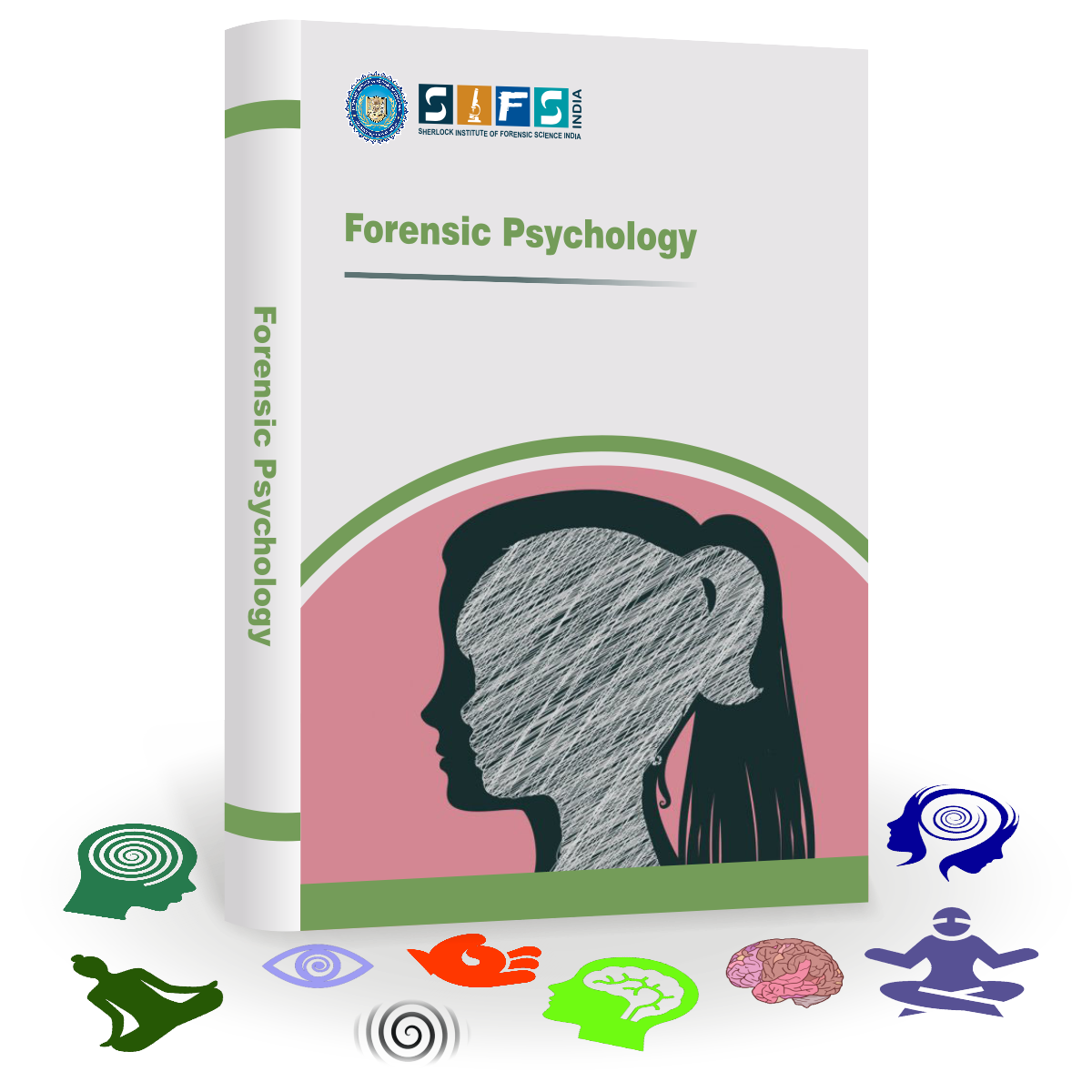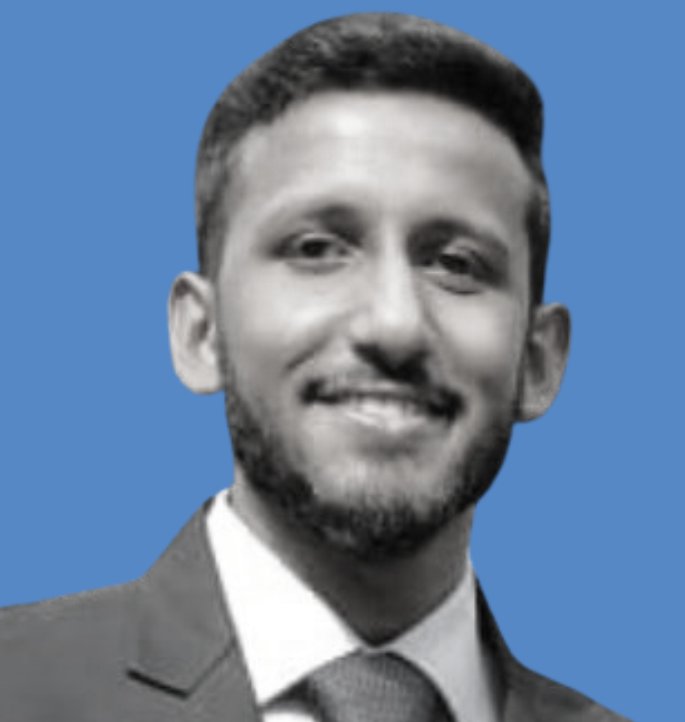MODULE 1 - FORENSIC PSYCHOLOGY
This module explores the domain of forensic psychology, its historical overview, career and scope, major areas, including criminal law, civil law, and negligence, the significance of psychology in forensic science in understanding human behavior, and the roles addressed by forensic psychologists, including actuarial, advisory, clinical/assessment, and experimental. The module also covers the limitations and ethical considerations governing the practice of forensic psychology.
MODULE 2 - PSYCHOLOGY AND LEGAL SYSTEM
This module focuses on the intersection of psychology and the legal system, historical development, the multifaceted roles psychologists play within the legal system (serving as advisors, reformers, and evaluators), and psychological pathways that influence the legal system (including the provision of expert testimony, cross-disciplinary training, amicus curiae briefs, and the broad dissemination of research findings).
You will also learn about the structure of the legal system, the relationship between psychology and law, conflicts that might arise, and the application of cognitive and clinical psychology in inspecting evidence law, particularly eyewitness proof. The module concludes by examining foundational concepts such as responsibility, retribution, deterrence, racial bias, and procedural justice, highlighting psychological aspects that support legal principles and practices.
MODULE 3 - PSYCHOLOGY CRIMINAL BEHAVIOR THEORIES
In this module, you will be introduced to the concept of understanding criminal behavior and various criminal theories (cognition, psychodynamics, biology/genetics, behavioral, social factors, social inequalities, and systematics), the relation between personality and criminal behavior, the role of individual traits in influencing unlawful actions, the relationship between intelligence and criminality, and an introduction to criminal behavior (differentiating and examining sexual offenses, violent and aggressive offenses, and constant exploitation), providing a detailed perspective about criminal activities.
MODULE 4 - PSYCHOPATHY
In this module, you will learn about psychopathy, the study of mental disorders within the criminal context, and the classification of mental disorders, focusing on the biological basis for psychopathy and the associated challenges in its treatment.
The module also covers special psychopathic groups (women, children, and adolescents) and the relationship between psychopathy and violent criminal behavior, including sexual violence, domestic violence, and violence in civil psychiatric patients. Legal and ethical considerations involving psychopathy are explored, highlighting the difficulties in applying them in cases involving individuals with psychopathic traits.
MODULE 5 - INTERROGATION AND CONFESSION
This module focuses on the concept of interviewing and interrogation, including techniques employed in criminal and terrorism investigations. It also covers the significance of confessions in legal proceedings, the concept of false confessions, including their types, identifying associated problems, and proposing possible solutions.
The role of polygraph examinations, including the process, limitations, and legal status of this investigative tool, is also explored. You will also learn the importance of video recording in interrogations, the use of Polygraph-Based Guilty Knowledge Test (GKT), the role of expert testimony in evaluating interrogations and confessions, and legal and ethical considerations surrounding the interrogation process.
MODULE 6 - ASSESSMENT AND RISK ASSESSMENT
In this module, you will be introduced to the concept of psychological assessment, including hypothesis formulation, data gathering (interviews, psychometric assessments, and test theory), data analysis, and report format.
The concept of risk assessment, including its principles, approaches, limitations, and effective communication of findings, along with strategies for managing risks, such as risk avoidance, risk reduction, risk retention, and risk transfer, within a risk management framework.
This module will equip you with the knowledge to follow a structured methodology to evaluate individuals, identify potential risks, and contribute to informed decision-making in legal and security contexts.
MODULE 7 - FORENSIC PSYCHOLOGY IN CIVIL PROCEEDING
This module explores the intersection between law enforcement and individuals with mental illness and the criteria for civil commitment, outlining the considerations of mental illness, dangerousness, and the need for treatment in the legal context.
The right of individuals to accept or refuse treatment; conducting civil evaluations, including parenting and child custody, personal injury cases, and instances of child abuse and neglect; and understanding the assessment of civil capacities are also covered.
MODULE 8 - FORENSIC PSYCHOLOGY IN CRIMINAL PROCEEDING
This module covers the field of forensic psychology with a focus on competence to stand trial (CST), with a focus on the prevalence of CST, the procedures involved in assessing an individual's competency to stand trial, and forensic assessment instruments designed for evaluating competency. You will also learn about the assessment of criminal responsibility, i.e., determining an individual's responsibility for criminal actions, the role of forensic investigators, and their legal responsibilities.
MODULE 9 - ASSESSMENT OF SEXUAL OFFENDER
In this module, you will learn about the behavioral aspects of sexual offenders and their assessment, the theory of personal and intra-psychic presentation, techniques to assess sexual offenders, including the Phallometric Assessment using the Penile Plethysmograph (PPG) and psychological assessments, risk assessment instruments tailored for sexual offenders, aberrant arousal patterns and cognitive distortions, the treatment and management of sexual offenders, and time-consuming commitments for hazardous sex offenders.
The module also covers the examination of special groups of sexual offenders, like juvenile, female, clergy, and online child pornography sexual offenders, along with the legal challenges that arise from obligatory treatments.
MODULE 10 - VIOLENCE RISK ASSESSMENT
This module explores the concept of understanding and managing violent behavior, the nature of violence, its historical overview, types of risk assessment (clinical, actuarial, and structured professional judgment approaches), risk factors associated with violence (static, dynamic, and protective factors), assessing the accuracy of risk assessment methodologies, and legal issues of violence risk assessment that highlight how legal considerations might affect psychological evaluations.
MODULE 11 - SUBSTANCE ABUSE ASSESSMENT
In this module, you will be introduced to assessment techniques to understand and evaluate individuals’ mental health within a legal context. Techniques covered include the psychodynamic assessment technique (focusing on the patient’s past and current problems and asking direct and indirect questions), the psychopharmacological approach (effects of medications on their mental state and behavior), and the cognitive-behavioral assessment technique (examination of thought patterns and behavior to understand and address psychological issues).
MODULE 12 - JUVENILE OFFENCES AND JUSTICE
This module covers the concept of juvenile offences, historical development related to juvenile court, risk factors contributing to juvenile delinquency, juvenile violence, including risk factors associated with both sexual and non-sexual violence, as well as incidents within school settings.
The role of forensic psychologists in the juvenile court system highlights their various responsibilities, like evaluating treatment liability, providing treatment interventions, and conducting transfer, competency, and insanity evaluations, along with the significance of understanding and managing juvenile offenders.
MODULE 13 - FAMILY LAW ISSUES
In this module, you will learn about the relation between psychological and legal matters within a family context, along with difficulties that might arise in such cases. It covers issues like child custody, guardianship matters, divorce proceedings, intra-family violence, and sex aberrant behavior.
MODULE 14 - VICTIMOLOGY
This module explores the psychology of victims in both violent and sexual offences, the psychological experiences of victims within cultural and social contexts, and various factors that influence their responses and coping mechanisms. The module highlights the emotional, cognitive, and behavioral consequences exhibited by individuals who have experienced trauma and how, by examining their psychological state, forensic psychologists gain valuable insights, thereby contributing to a more comprehensive understanding of the aftermath of violent and sexual offences within diverse sociocultural frameworks.
MODULE 15 - PSYCHOLOGICAL PROFILING
In this module, you will gain a basic understanding of criminal profiling from a psychological perspective, its historical evolution, the psychological principles, and approaches to offender profiling, including diagnostic evaluation, criminal investigation analysis, crime action profiling, and investigative psychology.
You will also learn about offender profiling using fuzzy logic and in violent crime investigations, examining profile traits associated with organized and disorganized crime scenes, the limitations of criminal profiling, and the importance of maintaining ethical standards while offender profiling.
MODULE 16 - SPECIAL APPLICATION OF FORENSIC PSYCHOLOGY
In this module, you will learn about the application of forensic psychology in specialized areas, like police psychology, which includes the psychological aspects associated with working for or within police support, along with the challenges faced by both police officials and mental health professionals,the significance of personality evaluations to assess suitability for police work,the psychological consequences of police work, and the legal liability.
The module then focuses on counterintelligence, its evolution from an intelligence perspective, psychological factors that shape its strategies, and modern threats in cyber security and cognition security. Finally, the concept of terrorism and counter-terrorism, covering their evolutionary status, and the scientific studies highlighting interactions among psychological, cultural, and religious factors in the context of global security.










